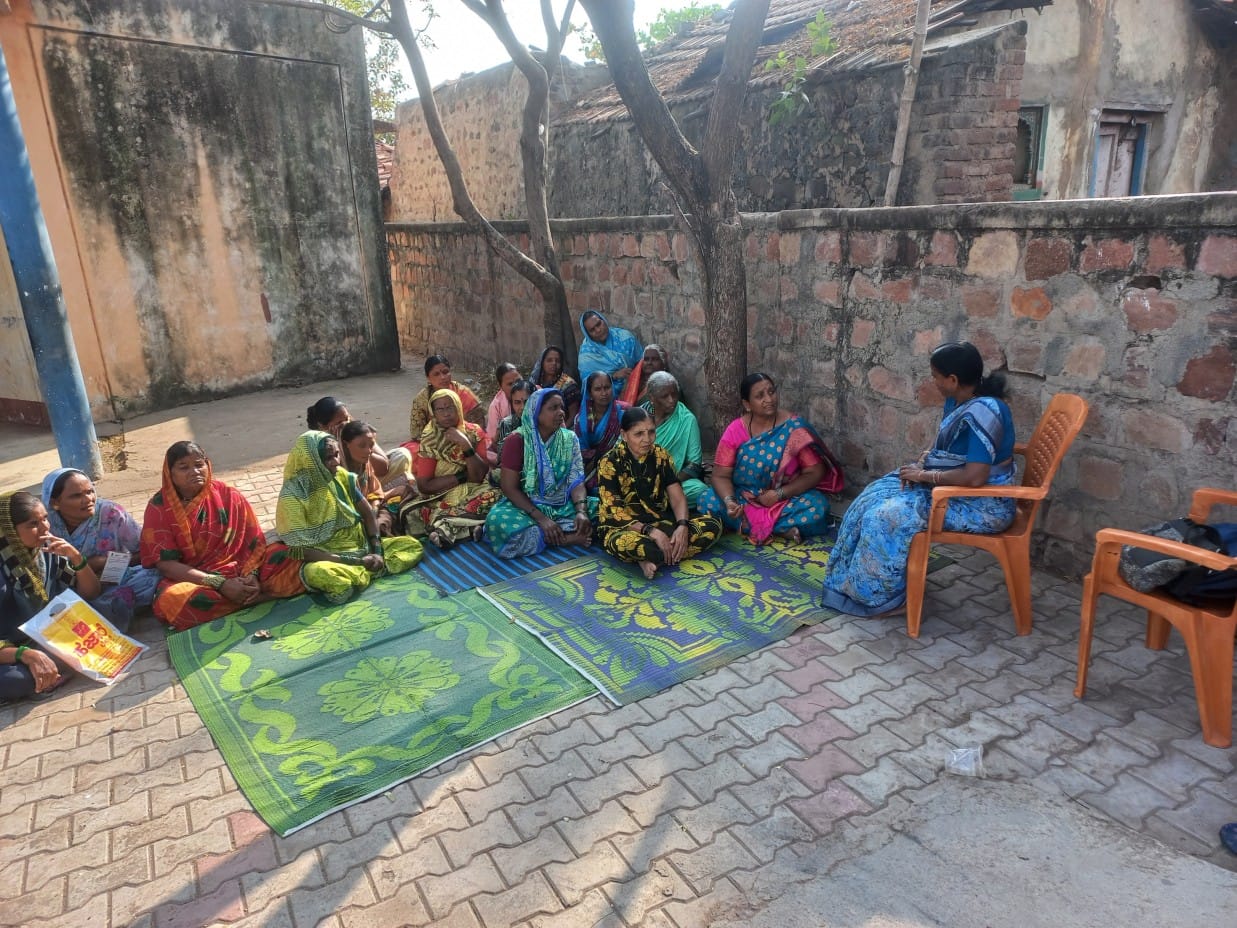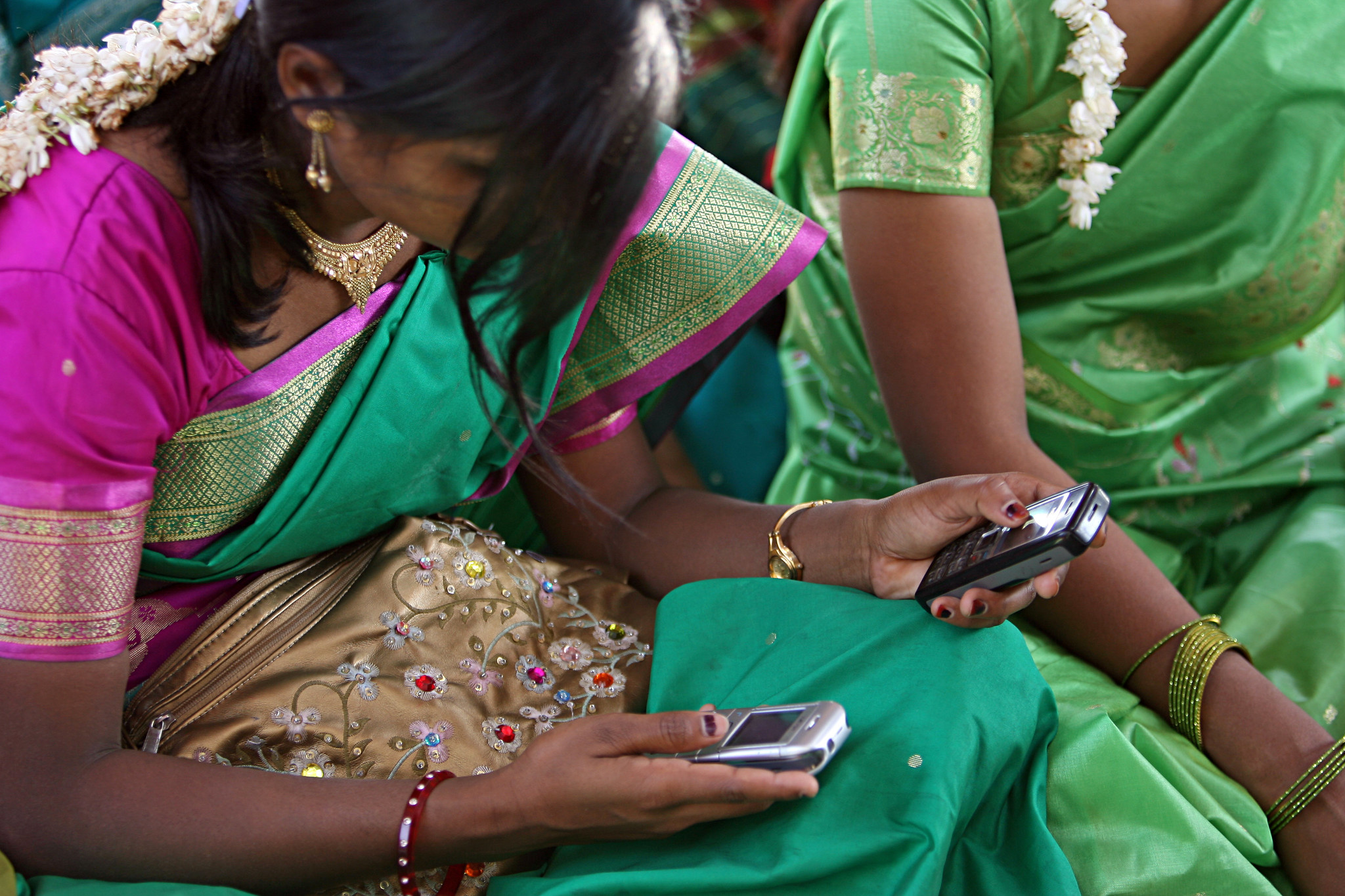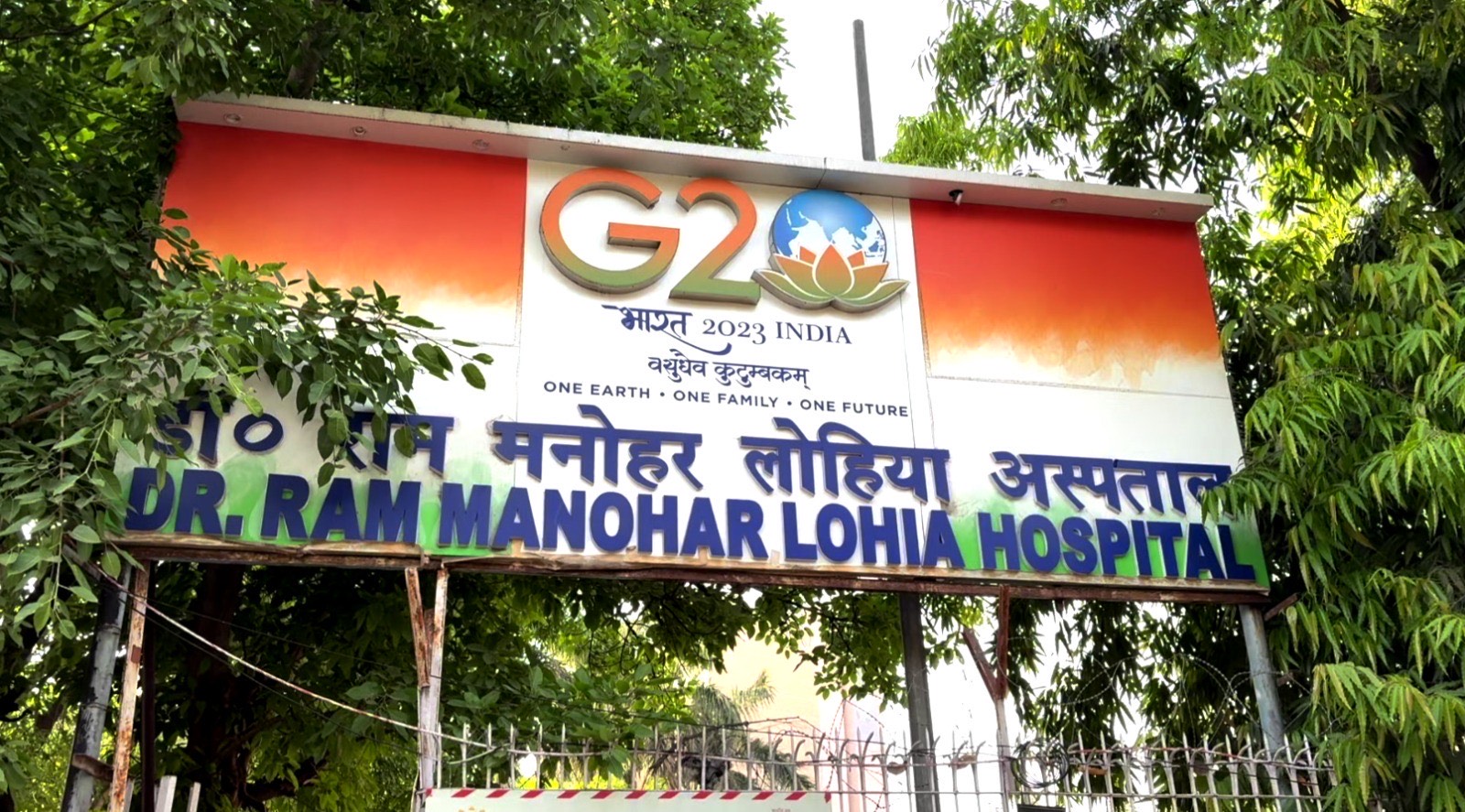Karnataka is home to 70,000 Devadasi women as per the 2016-17 report by the National Human Rights Council. While there is a sharp decline in the practice – especially in North Karnataka which was once the hub of the social evil – it is still deeply entrenched in certain Dalit families despite a law prohibiting it as a punishable offence. The Karnataka Devadasis (Prohibition of Dedication) Act, 1982 was enacted by the state government in 1982 and came into effect only in 1992.
Life as a Devadasi woman
Shoba Gasti of Belagavi District, who will turn 50 on May 10, 2025, is among the earliest pioneers to oppose the practice after she was initiated as a Devadasi when she was 12 years old based on the dream of her mother, who feared repercussions from Goddess Yellamma. ‘As an innocent 12-year-old, I was enamoured by the attention that I got when I was initiated into the process. However, I attained puberty at the age of 13 and then the travails of my life began due to abject physical harassment by my own brother-in-law and other members of society,‘ Shoba recalls with tears.
Shoba Gasti’s story strongly reiterates how superstition, illiteracy and poverty forced Dalit families to initiate young girls as Devadasis and subsequently push them into commercial sex work to neighbouring regions. Shoba lost her father when she was two years old – she was the last sibling among three brothers and three sisters. Originally, her mother initiated her elder sister as a Devadasi, but she eloped with a man from another community to escape such tortures.
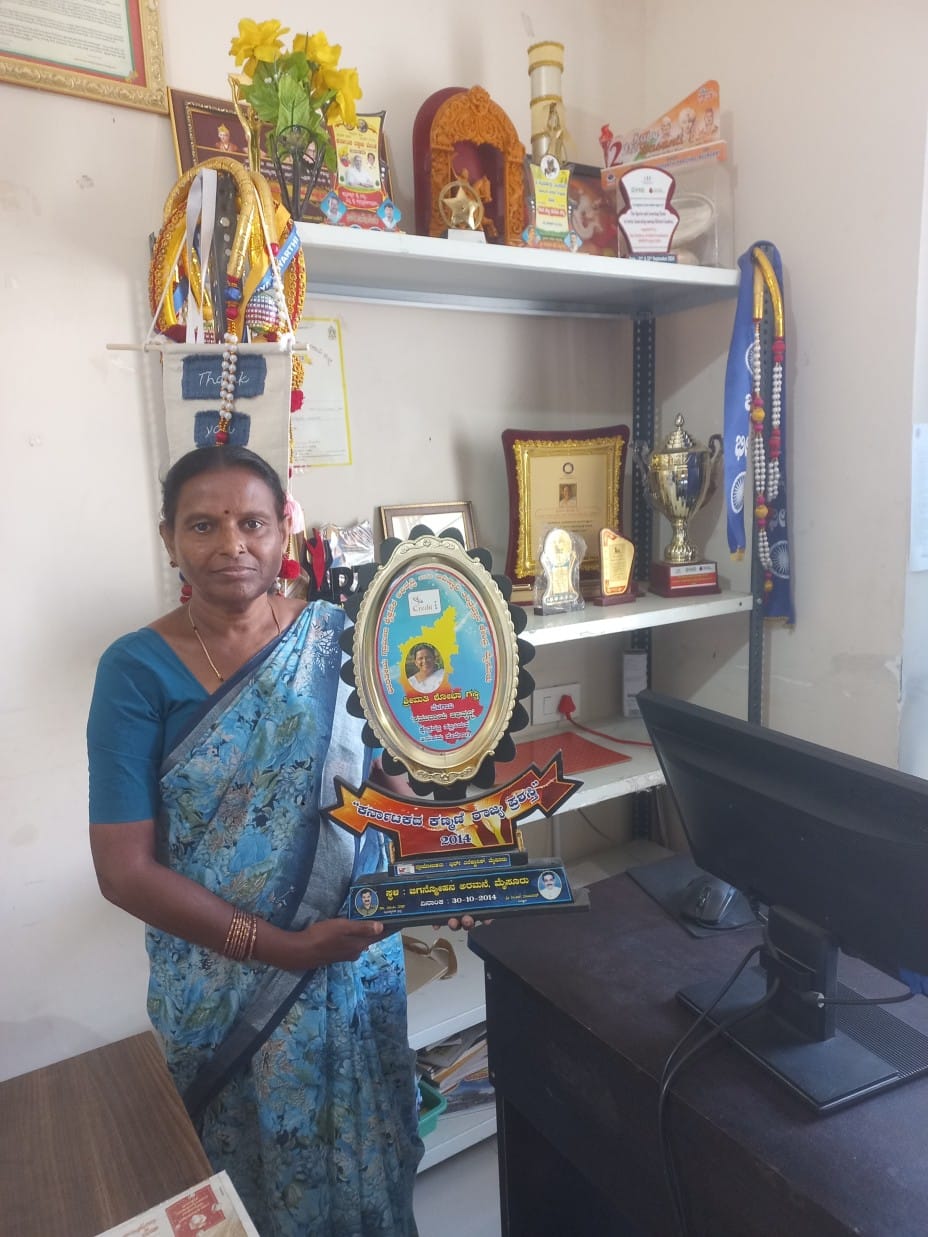
Her mother was then tormented by nightmares wherein she dreamed that her eldest son would become a Jogappa – a practice in which young men/ boys are castrated to become eunuchs which in turn increased their risk of exploitation and begging – because of the wrath of the Goddess. Shoba’s mother approached the temple priest, also considered as a soothsayer, and narrated her nightmares. The temple priest interpreted the nightmares as divine intervention to make her youngest daughter a Devadasi.
To become a Devadasi, girls between the age of 7-12 years (before attaining puberty) are taken to designated temples by their family. The process of initiation includes adorning them as a bride after a dip in the holy water where they are then wedded to the idol of the Goddess. Five senior Devadasi women then tie the pearl necklace (the specific identification of a Devadasi) as the symbol of their initiation as a Devadasi woman. ‘The girl and the idol are blessed by showering grains of rice similar to blessing a married couple,‘ Shoba Gasti narrates. However, on attaining puberty, the girls are then pushed into commercial sex work.
‘This tradition existed centuries ago, albeit in a more decent form wherein women with dancing (such as Bharatnatyam) or singing skills were considered as courtiers of kings. They used to entertain kings, who in return would give them lumpsum honoraria based on their moods. But of late, the practice has degenerated to the extent of Devadasi women becoming commercial sex workers – very often leading despicable lives of physical, mental harassment and torture,’ Shoba Gasti explains.
Fighting for change and shifting narratives
Shoba Gasti now focuses on socio-economic empowerment of former Devadasi women with special attention to their children who are often denied equal opportunities and accessibilities to lead a dignified life. She founded MASS in 1997 and subsequently moved over to AMMA Foundation in 2017 where she continues to work till date.
She founded MASS in 1997 and subsequently moved over to AMMA Foundation in 2017 where she continues to work till date.
‘The children of Devadasi women are the most psychologically affected as they do not know the name of their fathers and are thus treated badly in their schools and societies. When filling up applications for admissions, jobs or opening bank accounts with passbook facilities, the forms ask for the name of the father. The children of Devadasi women usually fill up their mothers’ names in the column. But sometimes, insensitive officials insist on the father’s name and when they do so publicly, the children feel very humiliated,’ she explains.
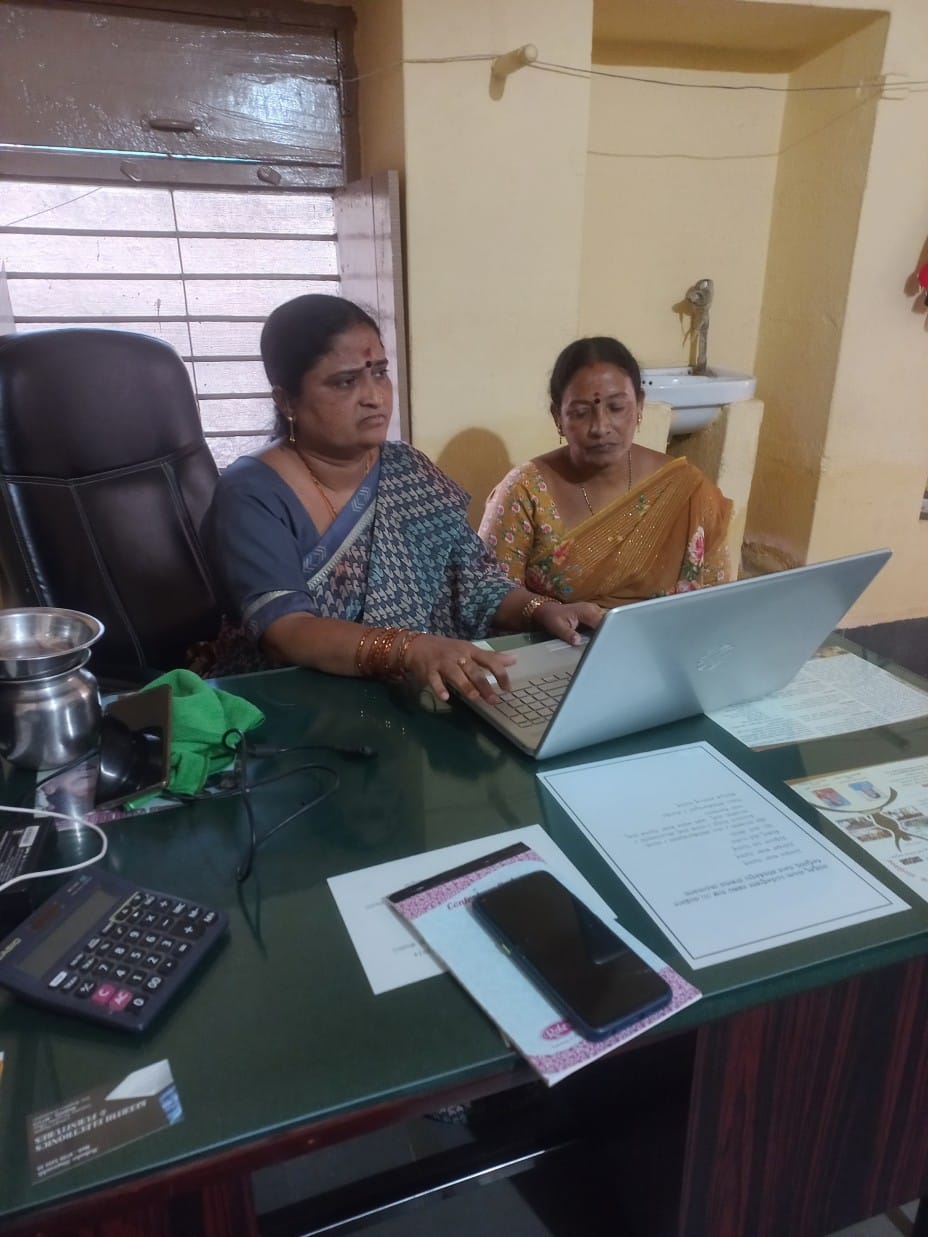
‘It is our humble request that all application forms make the father’s name optional and not insist on both names which makes accessibility to services twice as hard. This will make Devadasi families inclusive to society and all help their children avail equal opportunities as otherwise they may lose out on joining the mainstream of society,’ Shoba appeals.
Shoba has been at the forefront of activism and interventions to eradicate the Devadasi practice. In association with various government and non-government organisations, she distributes pamphlets, conducts street plays, songs and awareness programmes. ‘After receiving training from MYRADA and Karnataka State Development Corporation, I worked with SHGs as part of the AMMA Foundation, and collaborated with other organisations such as Child Rights and You and Torres des Hommes of the Netherlands. Such support is essential to reach wider cross sections of society in preventing social evils,‘ Shoba Gasti states.
Shoba Gasti’s experience is replicated in the lives of other Devadasi women, such as Madhu Naduvinamani and Renuka Gadi (both, Bagalakote District), Yashoda Gasti (Belagavi District) and Shoba Mathad (Koppal District). Shoba Mathad, a 41-year-old mother of two children (son in 12th standard and daughter in 8th standard), was forced into the Devadasi practice as a family tradition. She recounts facing harassment and humiliation at hospitals during her medical check-up for pregnancy, and how this experience gave her the courage to fight her way out of the system to lead a respectable life.
With support and training from not-for-profit organisation SNEHA, today Shoba Mathad spearheads campaigns to work for the welfare of Devadasi women and their children. The founder of SNEHA, T. Ramanjaneya, a qualified civil engineer, launched his NGO to uplift women of vulnerable communities, including Devadasi women and their families.
The founder of SNEHA, T. Ramanjaneya, a qualified civil engineer, launched his NGO to uplift women of vulnerable communities, including Devadasi women and their families.
‘As a young girl, I dreamt of getting a good education, getting married and leading a respectable life. However, I was initiated as a Devadasi at a young age as a family tradition. I even wanted to get married to a boy from another community to lead a respectable life, but his family rejected the proposal saying I was Devadasi’s daughter and from the SC community. I was the only daughter of my mother, who was physically disabled, and was forced to take up commercial sex work to support my family. Unfortunately, I got pregnant and wanted to abort the child. To my dismay, none of the hospitals – government and private – refused to entertain me as a patient fearing that I may be suffering from sexually transmitted disease as a Devadasi woman,’ Shoba Mathad recollects with tears.
‘I then decided that I should not punish my offspring for my mistakes. I have two children and after that managed to undergo a family planning operation. I then decided to quit the profession and practice. Though I have studied up to 12th standard, I even worked as a farm labourer. Thankfully, SNEHA identified and supported me for their campaign awareness against the Devadasi system. There are 65 Devadasi women in our village and we have formed a 25-member SHG to create awareness and stop the practice. We want the children of Devadasi families to get educated and stand on their own feet – we are proud to say that one of the boys has also become a police official,’ she states.

Increasing incidents of HIV/ AIDS resulting in the death of Devadasi women further exacerbated the impact of the practice. Renuka Gadi and Madhu Naduvinamani launched the Chaitanya Mahila Sangh Mudhol with the agenda:
- Improve healthcare facilities for commercial sex workers to prevent HIV/ AIDS;
- Work towards upliftment of vulnerable women;
- Create awareness on financial savings among women;
- Nurse HIV-infected women to improve their health;
- Help Devadasi women avail loans for socio-economic improvement;
- Create awareness with women on their rights to avail legal aid;
- Prevent harassment and injustice to women;
- To completely eradicate the Devadasi practice;
- Upskill women in tailoring, embroidery, handicraft, and other suitable vocations;
- To prevent girls below 18 years from becoming commercial sex workers.
Through these efforts, Renuka and Madhu are reducing school drop outs of Devadasi children. They also ensure such children receive training for competitive exam coaching from Byju’s.
Yahshoda Gasti’s narrative revolves around how her grandmother sweet talked her into becoming a Devadasi despite the fact that she wanted to pursue education to bring her family out of the socio-economic rut. ‘My grandmother shattered my dreams and pushed me into a life of abhorrence. It took me a lot of effort to pull out of the despicable situation – by then I had children. I now support my family by working for NGOs on creating awareness,‘ Yashoda recollects with visible pain in her eyes.
Reparation from the government
Most Devadasi women are single mothers struggling to take care of their families. Women registered as a Devadasi in the official records receive the following:
- Financial aid in the form of 50% loan and 50 % subsidy to start vocations such as dairy farming, poultry farming, livestock farming and setting up petty shops.
- Loans with subsidy up to Rs. 2 lakh for construction of houses if they owned sites.
- Rs. 2,000 monthly pension per Devadasi woman.
- Rs. 5 lakh grant to the daughter or Rs. 3 lakh grant to the son of a Devadasi woman for their wedding expenses or setting up a vocation.
However, not all Devadasi women receive benefits, unless they are officially registered with the system.
However, not all Devadasi women receive benefits, unless they are officially registered with the system. To rectify this, stakeholders including government, NGOs, Devadasi women and civil society organisations are now discussing modalities of conducting a fresh census to get the exact enumeration of Devadasis women in the State. The former Devadasi women of Koppal District also seek a review of the benefits to match the current economic needs.
SNEHA, an NGO fighting for Devadasi emancipation
An accidental encounter with Devadasi women, over two decades ago, when travelling in a truck led T. Ramanjaneya to start his not-for-profit organisation SNEHA. Ever since, he’s been working as the Executive Director for the cause of vulnerable women in this region. Ramanjaneya made discrete inquiries about the women being picked up by truck drivers and was shocked to realise the pathetic life of Devadasi women being used as commercial sex workers and the plight of their children.
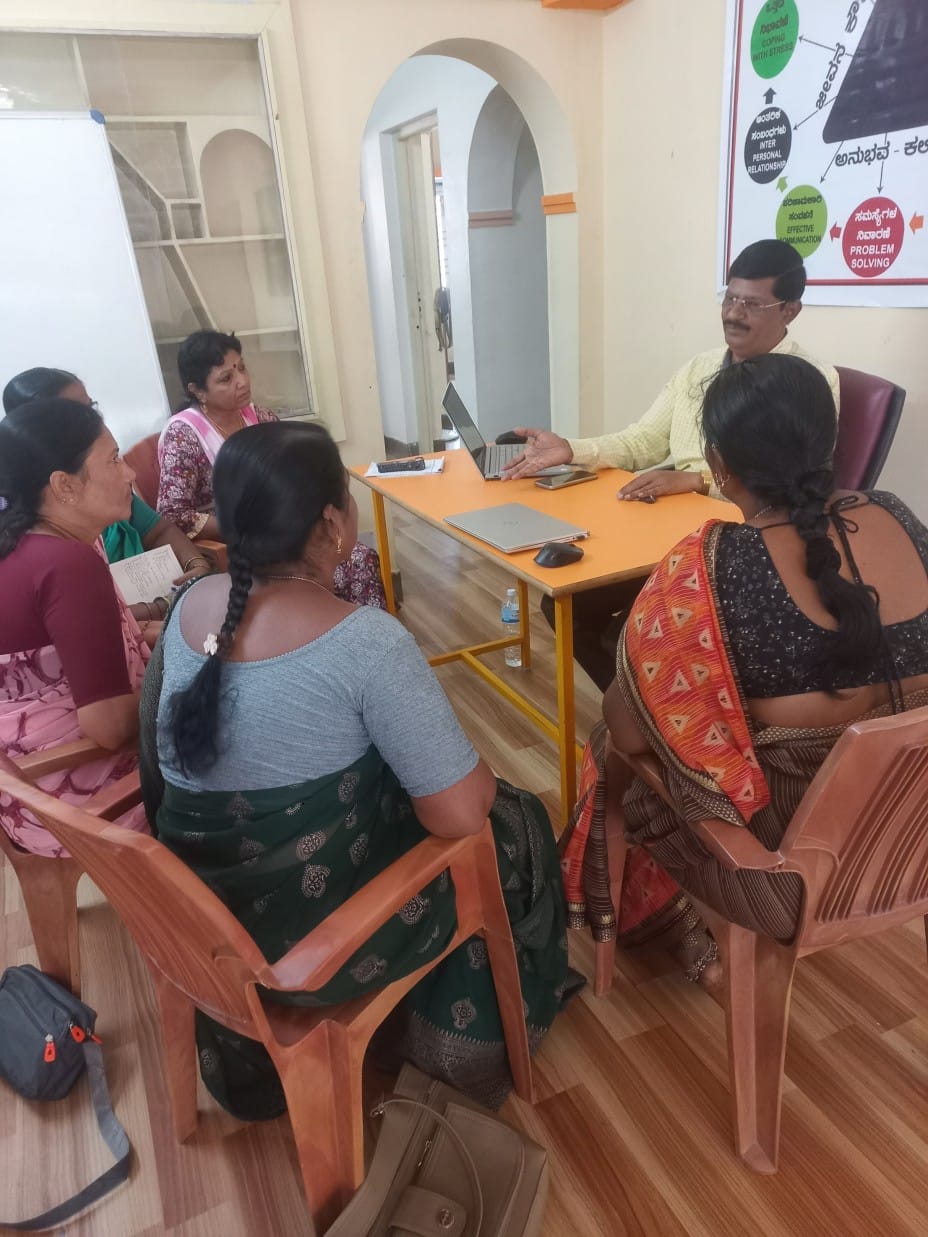
‘I was already in the non-profit sector to uplift children from vulnerable sections of society, I also started to work on emancipating Devadasi women by conducting awareness programmes after receiving training on their issues including caste and gender-based violence,’ Ramanjaneya explained.
SNEHA now recruits Devadasi women to carry out campaigns and they work as field executives at grassroots levels. SNEHA undertakes active interventions with all stakeholders – victims, communities, societies and governments – both at the individual and collective levels. Realising education is key to empowering children, especially girls of Devadasi families, SNEHA financially supports the education of girls after their 12th standard to pursue ANM, GNM, BSc Nursing, MBBS, BVSc or paramedical courses. SNEHA has so far supported 100 such children, some of whom have completed their courses and taken up jobs.
Despite efforts from the government, civil society and members of the Devadasi community, the weight of the trauma and the social ostracisation continues to be an immense battle for the women and their families. The life and the work of Devadasi women highlight the need for stronger awareness and collective action of the community to completely eradicate such harmful practices.
Recognition and awards for their impactful work
Shoba Gasti, Madhu Naduvinamani and Renuka Gadi, and T. Ramanjaneya have won a plethora of awards for their outstanding social activism in eradicating the Devadasi system.
https://dainik.bhaskar.com/bcnQLnvNLRbThis story was originally posted as a ground report for Dainik Bhaskar, and reworked to amplify the voice of the Devadasi women for Feminism in India.
